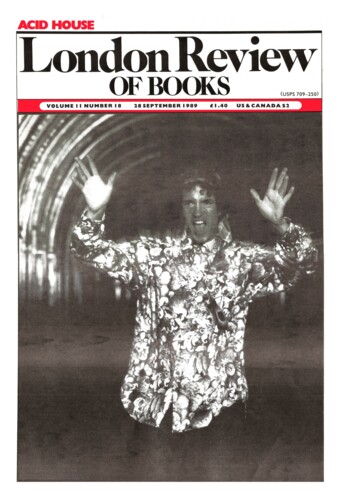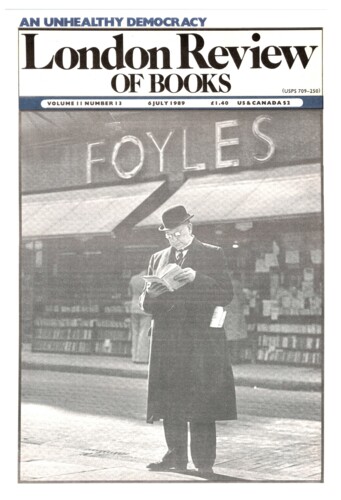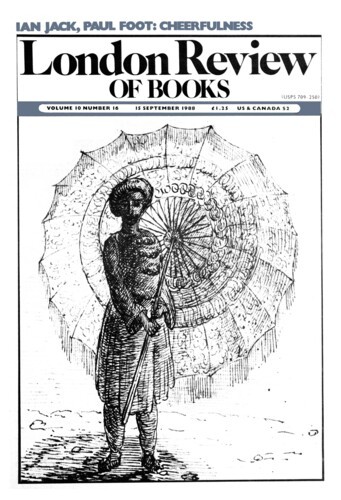Almighty Godwin
Paul Foot, 28 September 1989
Don’t be deceived by title or subtitle. This is not the biography of a family and it is not about the Godwins and the Shelleys. Perhaps the publishers persuaded William St Clair against his better judgment to downgrade his hero in the title and to include the Shelleys, who are more famous. This rich, glorious book is, however, a biography of William Godwin – no more, no less. St Clair himself is described on the dust-jacket as a ‘senior Treasury official’, a horrifying disclosure which emerges elsewhere in the book only in parenthesis (the French monarchy was forced to appeal to the Third Estate, St Clair tells us, because it failed to ‘control the public sector borrowing requirement’ and the philosopher Malthus discovered in the early 19th century what HM Treasury has discovered in the late 20th – that the ‘great economic answer to social misery is to make it worse’). How St Clair gets on with his Malthusian colleagues at HM Treasury day by day is a perpetual wonder to the reader of this book, where, like his subject, he emerges as a genuine Whig, a creature not so much of the French Revolution as of the Enlightenment.’




